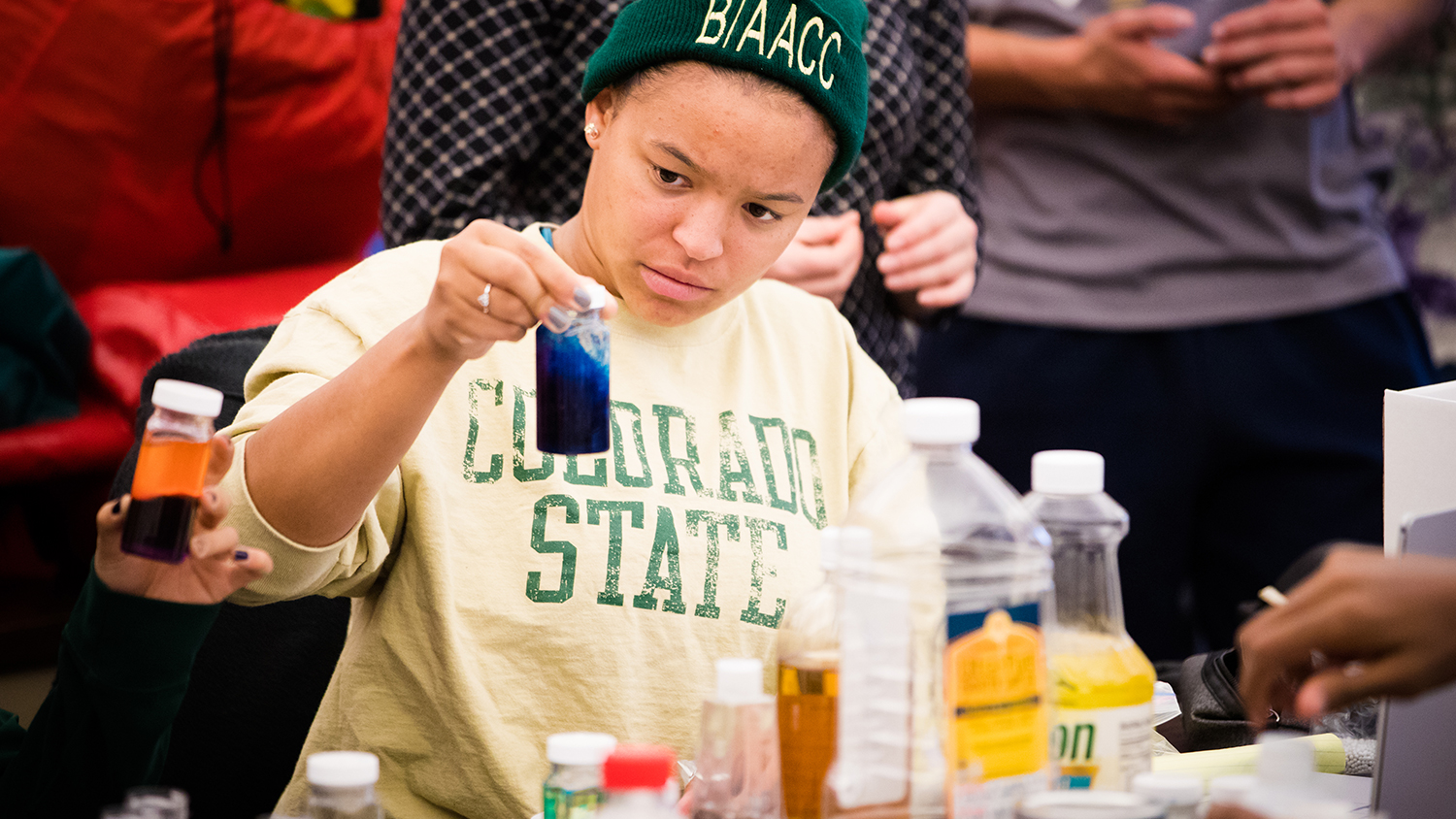
“What is your top major?”
Wondering what our top majors are? It’s a question we hear a lot, and we’ve got an answer that might surprise you.

Do you want to discover new materials or research how chemicals interact to help solve the world’s problems?
In the Chemistry major, you’ll study the structure of physical matter, which makes up everything we can see and touch in the university. Students in this major gain a deep understanding of chemistry and can apply that knowledge to solve a wide variety of problems – such as pollution – or create new innovations – such as biodegradable plastics. Students work alongside expert faculty members using state-of-the-art facilities.
| Degree type | Bachelor of Science | |||
| Format | On campus | |||
| Part of | College of Natural Sciences | |||
| Competitive major? | No | |||
| Accelerated option? | No |
A concentration allows you to specialize in a certain area within your major, offering a depth of information and hands-on experiences that you may not otherwise get. Many students in this major will concentrate in one area to work in a specific field after college, as well as find mentors and internships before they even graduate.
Learn the interconnected chemical processes — both naturally occurring and human caused —that shape the environment. You’ll develop and apply analytical skills to measure environmental chemical species and quantify their role in environmental chemistry and learn to communicate the results in policy decisions for questions involving the air, food, soil, and water.
If you hope to work in forensic science (yes, like CSI), you’ll focus in this concentration to understand the design of chemical experiments to investigate forensic samples.
This concentration will teach you how to identify the anatomical features of humans or domestic animals and define their physiological roles, along with articulating the role chemistry plays in disease and its treatment.
In sustainable chemistry, you’ll explore the unintended consequences associated with the synthesis of compounds ranging from life-enhancing medicines to the materials of modern society. You’ll learn to articulate the thought process used to develop safer, more energy- and material-efficient processes, including the recovery and conversion of waste to raw material.
Chemists are employed in a vast array of professional fields in private industry, government, and education. You’ll have opportunities in research and development, analysis and testing, consulting, industrial quality control and assurance, environmental resource management, and forensics. Many chemists are also engaged in startup companies. Chemistry is also an excellent major for those preparing for careers in veterinary medicine and the health professions.
For additional opportunities, please reach out to:
Warren Jackson, undergraduate recruitment coordinator, at warren.jackson@colostate.edu or (970) 491-4519.

Wondering what our top majors are? It’s a question we hear a lot, and we’ve got an answer that might surprise you.

Hear about these students’ experiences in a variety of academic programs.

Department. Concentration. Exploratory Studies. You’ll see these words a lot in your college career.

Want to find a community on campus that you can connect and learn with? Explore CSU’s Residential Learning Communities now.
Want a more in-depth look at this major? Take a look at the program website to learn more.